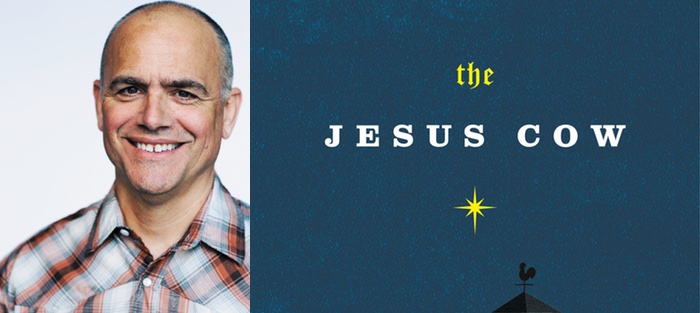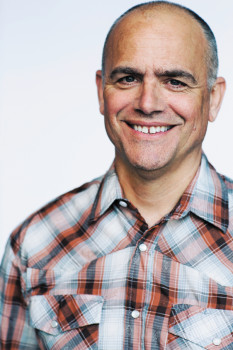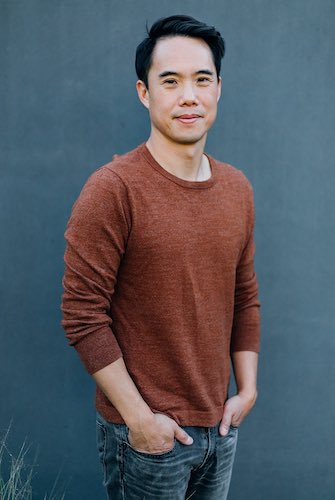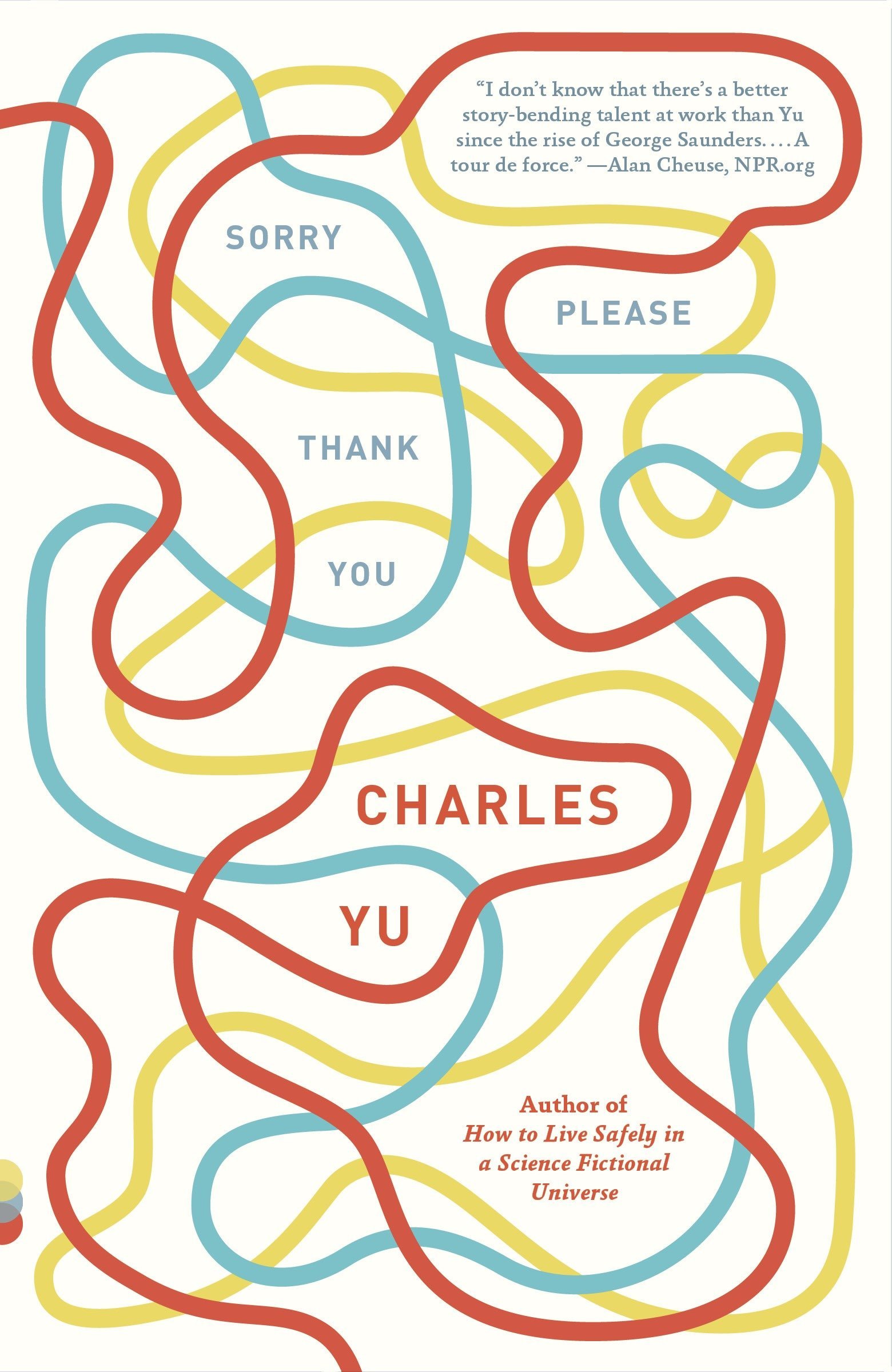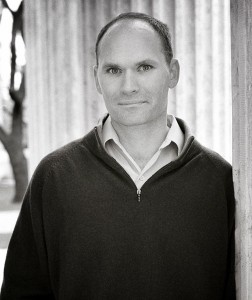Michael Perry’s new novel The Jesus Cow (HarperCollins) opens with the best (and shortest) prologue I can think of:
On Christmas Eve itself, the bachelor Harley Jackson stepped into his barn and beheld there illuminated in the straw a smallish newborn bull calf upon whose flank was borne the very image of Our Lord and Savior Jesus Christ.
“Well,” said Harley, “that’s trouble.”
The prologue provides the basics of the story: bachelor, newborn calf, Jesus, trouble. It’s also evidence of how the novel stands tripodally—one foot each in the worlds of humor, humility, and high diction. It’s a very Michael Perry thing to do—give you a sense of reverent awe one moment, a chuckle the next. Perry, a born-and-raised Wisconsinite, is an agnostic who is careful to show respect and admiration for the fundamentalist Christian family in which he was raised. In The Jesus Cow he has neither ax to grind nor ideology to preach. Right and wrong have little to do with dogma and much to do with selflessness, respect, and a desire for peace.
Perry only recently began writing fiction. HarperCollins published his Young Adult novel, The Scavengers, in 2014. Previously he published a number of books of nonfiction, including the essay collection Population 485: Meeting Your Neighbors One Siren at a Time and the memoir Coop: A Family, a Farm, and the Pursuit of One Good Egg. He performs as a humorist and with his band the Long Beds, he’s a contributing editor for Men’s Health magazine, and he’s published articles in a number of nationally distributed magazines. He also needs to go into town—Eau Claire—in order to use high-speed Internet, because “out at the farm our Internet is no good.”
He stepped away from his Internet errands, though, and walked to a bridge overlooking the Chippewa River to speak to me by phone.
Interview:
Mindy Misener: What brought about your turn to fiction?
Michael Perry: Several things. I’d been reluctant because I’m a respecter of genre; I would never assume that you can just hop genres. The genesis of The Scavengers was five or six years ago. An editor approached me and asked if I would consider writing for the Young Adult audience. Over time, the nugget of the idea of the character emerged, and then there came a time when I was ready to pitch it. I pitched it out of a combination of desire to (a) go ahead and create the character and finish the book and (b) pay for health insurance. [Laughs.] The Jesus Cow was the fragment of an idea carried around for about ten years. Back in my hometown I had been compiling notes toward the idea. I enjoy the nonfiction genre; I’m at home there. But I’d done four memoirs in ten years, and I thought maybe I should mix it up a little.
The Jesus Cow has the best prologue I’ve ever read. I loved both the high and the low registers of it, the “Our Lord and Savior” down to “Well, that’s trouble.” Did that come first?
No. I had a very cherished scene that I wrote and rewrote for about five years. The first time my editor saw it, she said, “I know you worked really hard on this, but we have to get to this story.” There’s a scene with Harley and the burn barrel, where Harley’s burning his past, essentially. Originally I started the book with that. What is now the prologue was overwhelmed by all this other stuff.
As far as the elevated prose versus the vernacular, that’s part of the reason I love writing. It allows me to do two things I very much cherish: explore language and the rhythm of language and poetry, and write in exactly the way that the people who raised me talk. During that prologue I get to do both; obviously I amped it up to the point of ridiculousness. But that’s a reflection of where I come from; it tends to be how my family and most neighbors I grew up with in rural Wisconsin speak. Something awful happens and you go, “Oh, well, that’s too bad.” The response may not accurately reflect the size of the problem.
The book’s dedication is “For the quiet ones.” Some relationships in the book are characterized by silence; we know characters are close when we’re told they can spend time together without talking.
I come from blue-collar, rural stock, kinda rough around the edges. Then I very accidentally wound up in this art world. I feel every day like I got on the wrong bus and it’s a beautiful bus. I spend my life going back and forth between two camps: I was raised a fundamentalist Christian by very loving, gentle people, and now I’m an agnostic. Where I come from, people tend to be pretty conservative. I wound up having my life changed for the better by people who were very open to all sorts of different possibilities and experiences. I go off on book tour, and then I come back and I’m on the volunteer fire department. Lately, I admit, I’ve been despairing over how the gulf just seems to get wider. People don’t want to talk, they just want to mock each other. It’s the same with religion: I’m an agnostic, I’m pretty firm in that, I don’t hide that. And yet some of the people who raised me—I try every day to be more like them. I know there are quiet people on both sides, who are quietly trying to do the right thing.
But also, yes, despite the fact that I make my living generating words, I’m a stoic in the classic sense. I love the quiet, I love hanging out with people and not talking.
What you were just saying has to do with your history, your childhood, the family and the faith that you were brought up in. As an agnostic who does have a faith background, what was writing about faith like?
[I had] a lot of residual nervousness. It’s a comic novel—it’s not like I’m trying to change the world here. But I am not at ease with saying even swear words. There’s a scene where Mindy [Harley’s love interest] looks up and says, “Jesus Christ!” Where I come from, you just do not take the Lord’s name in vain. Now there’s a narrative reason and a punch line to the joke there, but those words were hard to type.
I also think that a sense of humor goes a long way—and I would like to think that even a believer would have a sense of humor, because things can go south pretty quickly when religion loses its sense of humor.
You’re also a humorist, and you do a lot of public presentations and radio shows. I’m wondering how good you are at anticipating what people will laugh at, how funny they’ll find things, or whether you’re sometimes surprised by their reactions.
I bat about .700. Some sense of what should be funny develops over time. But that thirty percent that doesn’t work interests me far more than the seventy percent that does. You discover by doing live readings—I’m always amazed by lines in the past that I’ve chuckled over at two a.m. in my office, and then you read it to an audience and there’s just nothing, no reaction. Then there are other lines that you worked real hard to try to make beautiful or poetic or something, and in a live setting, someone will laugh, and that’s even more surprising.
Writing fiction being relatively new for you, what new challenges did it bring? What was your transition like?
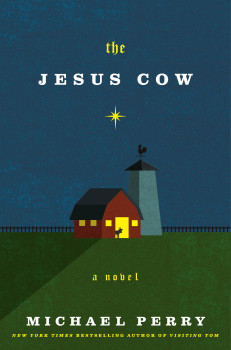 The single thing I was looking forward to the most, as a nonfiction guy who does fact-checking and verifying sources and all that, was to create characters who said what they wanted to say, create places I could imagine in my head. But that was all outweighed by this thing they call plot. I owe a lot of my fiction-writing friends hand-written notes of apology. They would always talk about their characters and how their characters didn’t work until they let the characters inhabit them, and the characters took over—and as Mr. Nonfiction, I would always roll my eyes and go yeah, well, whatever. Then I found out pretty quickly that you do have to shut up and let your characters talk. By Chapter 3 of The Scavengers I realized that nothing good was going to happen unless I shut up and let Maggie do all the talking. To an extent, that was true with The Jesus Cow, as well. So I just have to eat all the words I ever said to my fiction-writing friends.
The single thing I was looking forward to the most, as a nonfiction guy who does fact-checking and verifying sources and all that, was to create characters who said what they wanted to say, create places I could imagine in my head. But that was all outweighed by this thing they call plot. I owe a lot of my fiction-writing friends hand-written notes of apology. They would always talk about their characters and how their characters didn’t work until they let the characters inhabit them, and the characters took over—and as Mr. Nonfiction, I would always roll my eyes and go yeah, well, whatever. Then I found out pretty quickly that you do have to shut up and let your characters talk. By Chapter 3 of The Scavengers I realized that nothing good was going to happen unless I shut up and let Maggie do all the talking. To an extent, that was true with The Jesus Cow, as well. So I just have to eat all the words I ever said to my fiction-writing friends.
The fictional town of Swivel is set up so carefully toward the beginning—the layout of the roads, a brief history of the businesses that used to be there, what’s there now. Did you need that to begin the story, or did it come out of the writing of the novel itself?
I needed to have a fixed place in my head so I could move the characters around. I wanted to get the description of where things were pretty early. As the book plays out, there’s a reason that in Chapter 1 you’re on top of the water tower, since the book comes back to that. And also I like the idea of Carolyn [a transplant to Swivel and considered a newcomer/outsider even though she’s lived there for years] on top of the water tower there—she’s an outsider. She’s the best person to show you the town, since the people who live there, they don’t really see it.
Initially, when I wrote her, she was completely unlikeable. A friend, a guy named Dean Bakopoulos, a novelist—he said, you don’t want someone completely unlikeable, because then there’s no reason to care about them. That scene on top of the water tower is the first time where you’re allowed to see that there’s some nuance to her, because you know she’d really rather be somewhere else but she admits that all of a sudden she actually feels some affection for this place, and then you wonder how that came to be.
She has a sense of peace about it being Christmas Eve that makes her more than the annoying I’m-going-to-rescue-this-place character.
Yeah, I think that there’s a lot of humor available with that character, since she does feel that it’s her mission to rescue a place that has not requested she do so.
Did the process of writing Carolyn one way and then discovering another side of her change your own perspective on interactions you will probably continue to have?
I think it will reinforce what I try to do. I always just feel like I’m half a step from falling on my face, so I hope that I don’t ever get too cocky. I try to operate out of humility. Of course even saying that you operate out of humility is not humble, so that’s a Catch-22. But, again, the reason Dean’s advice about her was so important was I should’ve known! I was feeling quite self-satisfied when I showed him the passage that described her. I showed it to him because I thought, “Oh, he’s going to get a kick out of this; it’s pretty funny.” And he comes back with, “Yes, it is funny, you’re right. But you can’t do this to her. She needs to have some dimension.” I get those reminders in real life, too. You form this opinion about someone and then you find out there’s backstory, or they’re doing something else you don’t even know about. I figure, we’re all going to fall, so I try to run close to the ground so there’s not so far to fall.
I’d love to hear about some of your literary influences. Do you consciously think about those, or do you think they’re buried? Do you have any guesses as to who or what they are?
Poetry was the first writing I ever approached seriously or tried to do. I love the way poets use and approach language; I love what Dylan Thomas says about choosing words for their taste over their meaning. Reading someone like Sharon Olds informs the way that I gentled up Carolyn. You read a Sharon Olds poem and you realize, hey, maybe there’s a reason Carolyn is angry at the world.
You were asking earlier about how long parts of this have been in process. There were fragments of a poem that I’ve carried in my heart for years that I wanted to use somewhere, and it’s in this book. That’s the scene where Harley goes up to the overpass and remembers this line: You haven’t prayed in so long, and he can’t quite remember—was it a blues song, was it a poem, what was it? It’s [from] a poem[1] by a woman named Honorée Fannone Jeffers. I first heard that poem when I got to go to Bread Loaf—I met Honorée there, and I still remember her reading that line. I fell in love with that line because it spoke to me so loudly, in part because of my own religious background, and how even when you walk away from those things, the elements linger and resonate and still mean something. To me the cadence of prayer and the rhythm of worship is still very powerful, and that line, You ain’t prayed in so long—I swore that someday I was going to use that, and I’m thrilled I got to incorporate it into this book.
I thought it was a beautiful line, and so naturally incorporated there. Do you have any other projects of fiction in the works?
I owe the publisher a sequel to The Scavengers, which is underway but far, far from complete. I hope to finish it next year. And here’s the odd thing: I really thought that The Jesus Cow would be a one-off. I admit I was pretty eager to get back to the comfort of nonfiction. But what I’ve been surprised about is I started to cogitate a few new ideas.
No matter your genre there’s that point in your project where you swear you’ll never do it again, what a horrible mistake. And then as soon as it’s done, within a day there’s that little hungry feeling that’s coupled with excitement, even if it’s just a twinge, and you realize, yeah, no, you’ve got it bad.
[1] “On Listening to the Two-Headed Lady Blow Her Horn,” from The Gospel of Barbecue: Poems, by Honorée Fannone Jeffers. Kent State University Press, 2000.

